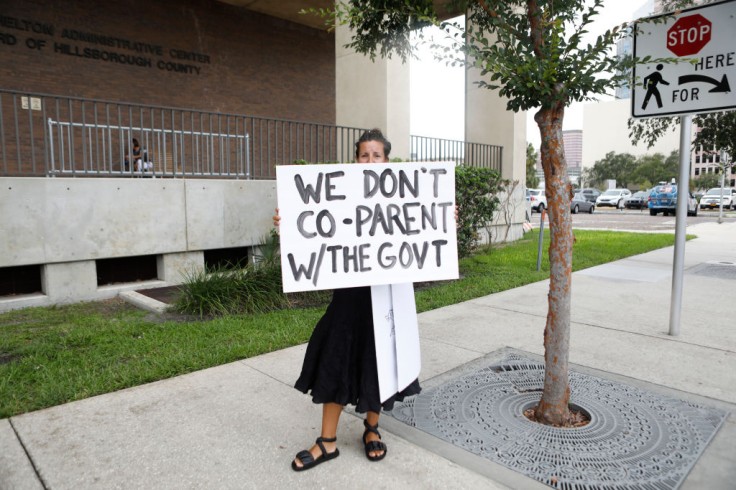
Florida is considering banning human sexuality education.
A controversial bill restricting public school instruction on human sexuality and related topics to grades 6 through 12 is moving through the Florida House.
The proposed legislation, sponsored by Republican Rep. Stan McClain, would ban discussing menstrual cycles and other human sexuality topics in elementary grades.
The bill has drawn criticism from education advocates and lawmakers alike and sparked a heated debate in the state's House Education Quality Subcommittee, where a 13-5 vote recently approved it.
While McClain insists that the bill intends to provide more uniformity in sex education across the state, critics argue that it would limit students' access to important health information and perpetuate harmful stigmas.
Florida is considering banning human sexuality education
According to WIVB4, the proposed legislation has been met with widespread opposition from education advocates, who argue it would limit students' access to crucial health information.
Under the bill, discussions about menstrual cycles, sexually transmitted diseases, and related topics would be restricted to grades 6 through 12, leaving younger students in the dark about important health issues.
Critics also argue that the bill would perpetuate harmful stigmas surrounding human sexuality, making it harder for young people to discuss these issues openly and honestly.
Some lawmakers have expressed concern that the bill could prevent teachers from discussing important health topics with their students, leading to confusion and misinformation.
Some education advocates have called for the bill to be amended or scrapped altogether.
They argue that comprehensive sex education is crucial for young people's health and well-being and that restricting access to this information could have serious consequences.
Florida lawmakers defend the bill as a way to protect parental rights
According to The New Republican, while critics have decried the bill as harmful to students' health and well-being, some lawmakers have defended it as a way to protect parental rights.
Under the proposed legislation, parents would have more pathways to object to books or other inappropriate materials for younger children.
Some Florida lawmakers argue that parents should have the final say over what their children are exposed to in school, including topics related to human sexuality.
They argue that the bill would give parents more control over their children's education while ensuring that students receive important health information in grades 6 through 12.
However, critics argue that the bill goes too far in restricting students' access to essential health information.
Florida lawmakers have been cracking down on related types of support for the younger generation. For example, the state recently passed the "Stop WOKE" Act.
As previously reported by ABC, Florida Gov. Ron DeSantis signed the "Stop WOKE" act in April, which aims to limit lessons and training on race and diversity in both schools and workplaces.
The act specifically prohibits teaching about topics such as privilege or oppression based on race.
Furthermore, it prevents discussions on whether individuals should feel guilt or psychological distress related to the United States' racial history.
The bill's acronym, WOKE, stands for "Wrongs to Our Kids and Employees."
While the bill has cleared one committee, it still has a long way to go before it becomes law. As the debate continues, education advocates will be watching closely to see how the legislation develops and what impact it may have on Florida's students.